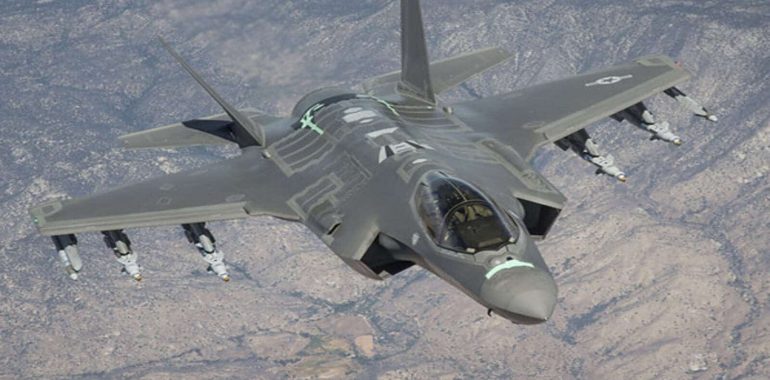Greek-American Opposition to Turkey’s F-35 Purchase Intensifies

Greek-American Opposition to Turkey’s F-35 Purchase Intensifies
Greek-American organizations are ramping up efforts to block the sale of advanced F-35 fighter jets to Turkey amid reports that President Trump is considering lifting sanctions, a move that could reinstate Turkey in the program.
AHEPA, the largest and oldest Greek-American organization in the United States, and the American Hellenic Institute have sent open letters to President Trump and Secretary of State Marco Rubio urging them to to maintain sanctions placed on Turkey.
Is Trump reconsidering the sale of F-35s to Turkey?
Earlier this month, Trump and Turkish President Recep Tayyip Erdogan held a phone conversation, after which reports emerged that Trump was inclined to potentially re-instate Turkey in the F-35 program.
Turkey was expelled from the program in 2019 after acquiring and deploying the Russian S-400 SAM system. Now, according to reports, Trump’s team is searching for ways to bypass the Countering America’s Adversaries Through Sanctions Act (CAATSA).
The US is once again raising concerns about the S-400 system, suggesting that Turkey’s return to the F-35 program could be possible if the Russian system is rendered inoperable. One potential solution under discussion is relocating the S-400 to a base controlled by the United States.
According to the Turkish government’s readout of the recent call between President Trump and his Turkish counterpart, Recep Tayyip Erdogan, stated that it was necessarily to “finalize Türkiye’s re-participation in the F-35 program.”
These reports follow a statement by Turkish Defense Minister Yasar Guler on November 26, revealing Ankara had formally resubmitted a request to purchase 40 F-35A fighters, and that he had informed a Planning and Budget Committee in the Turkish Parliament that Washington could reconsider selling the aircraft under the upcoming Donald Trump administration. He at the time claimed that US officials had expressed openness to the possibility of supplying the aircraft.
Greek-American groups against sale of F-16s to Turkey
AHEPA Supreme President Savas C. Tsivicos in a letter, expresses AHEPA’s concern given Turkey’s recent actions and policies and encourages Secretary Rubio to protect United States Security and Allied Interests.
The letter notes that Turkey is harboring and supporting Hamas, it has exhibited sympathies toward Hezbollah, another US-designated terrorist organization, it has launched military operations against the Kurdish forces in Syria, who have been key US allies in the fight against ISIS, and remains the only NATO ally that has refused to impose sanctions on Russia following its unprovoked invasion of Ukraine.
It adds that Turkey under Erdogan “has frequently engaged in provocative actions and rhetoric against Greece, including violations of Greek airspace and maritime zones. These threats to Greek territorial sovereignty run counter to the principles of NATO and risk further destabilizing the region.”
Turkey continues its illegal occupation of the northern part of Cyprus, a sovereign European Union member state, the AHEPA letter stresses. “Despite decades of international condemnation, Turkey refuses to withdraw its military forces or engage in good-faith negotiations to resolve the issue.”
American Hellenic Institute (AHI) President Nick Larigakis has also sent a letter to Trump, urging him to uphold the sanctions imposed on Turkey under the Countering America’s Adversaries Through Sanctions Act (CAATSA). The sanctions were imposed after Turkey acquired the Russian-made S-400 missile system, despite repeated warnings from the previous Trump administration.
In his letter, Larigakis emphasized that Turkey was fully aware of the consequences of acquiring the S-400 system yet proceeded with the purchase. He argued that allowing Turkey to rejoin the F-35 program simply by disposing of the missile system would “send a message that the initial decision to purchase the missile system will ultimately go unreprimanded.”
Furthermore, he stressed that Turkey should eliminate the S-400 system not as a bargaining tool with the US but as a demonstration of its commitment to its obligations toward the United States and NATO. “The US cannot reward [Turkey] for addressing an issue it created in the first place,” Larigakis said.